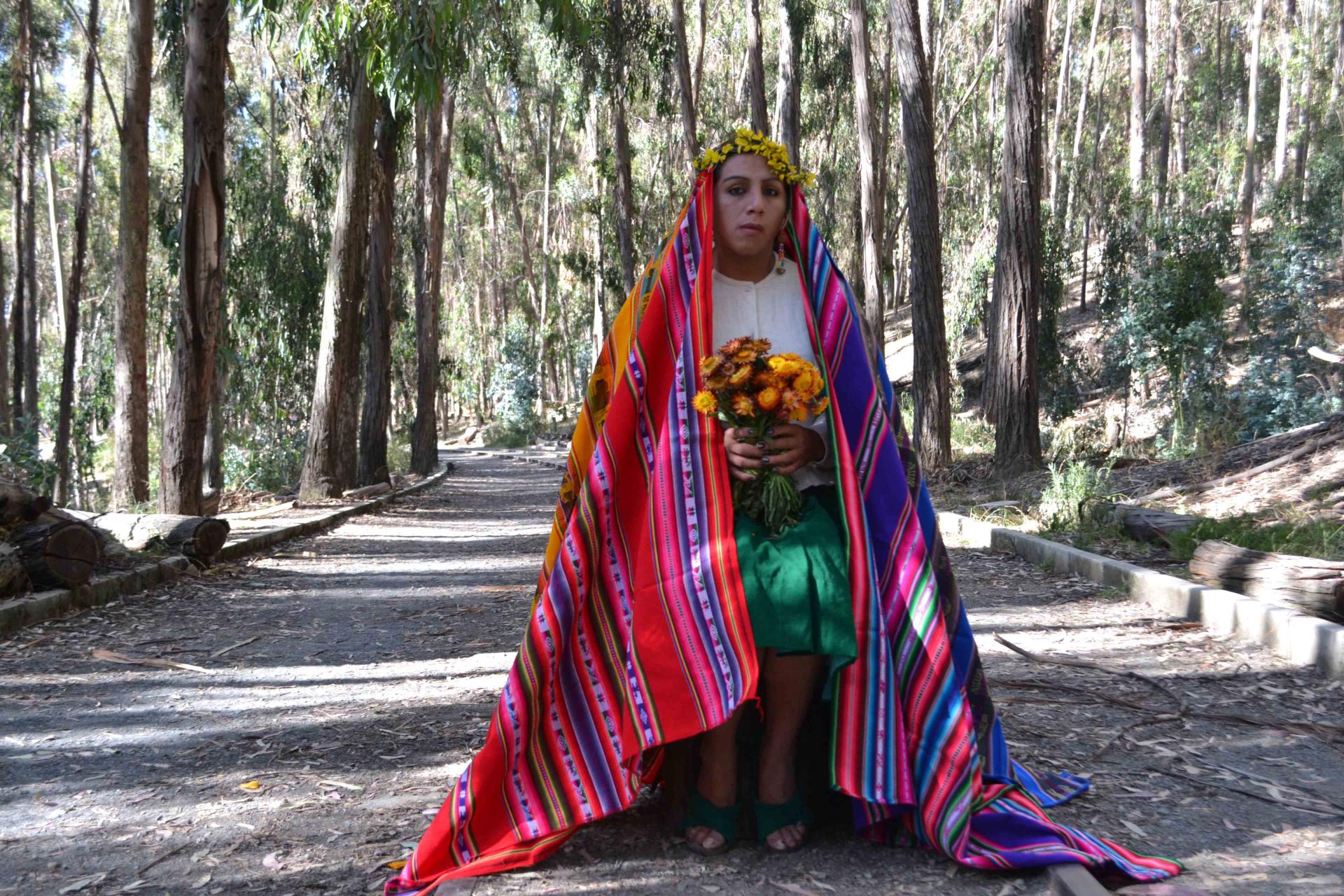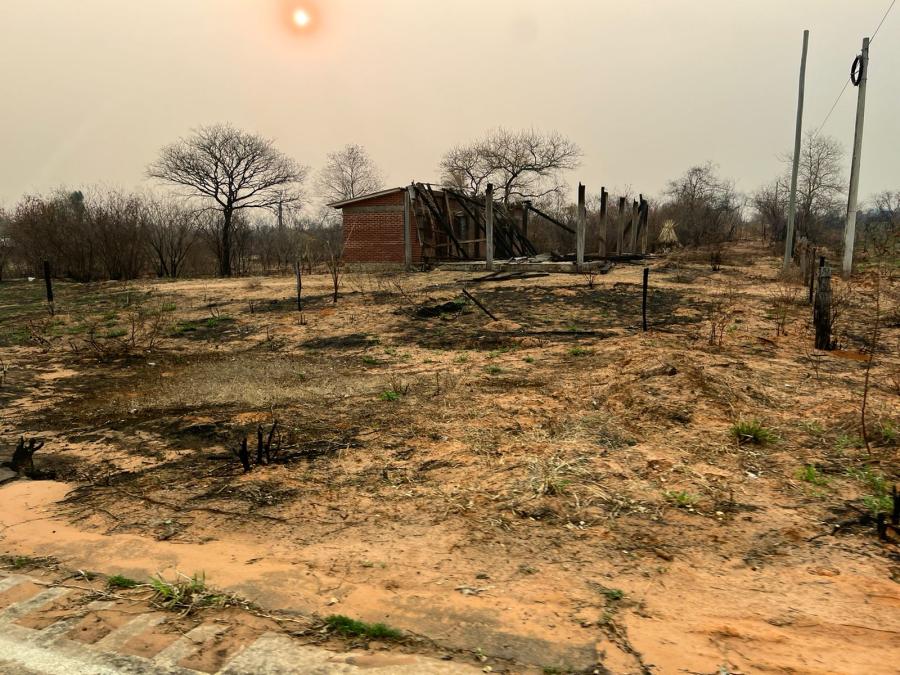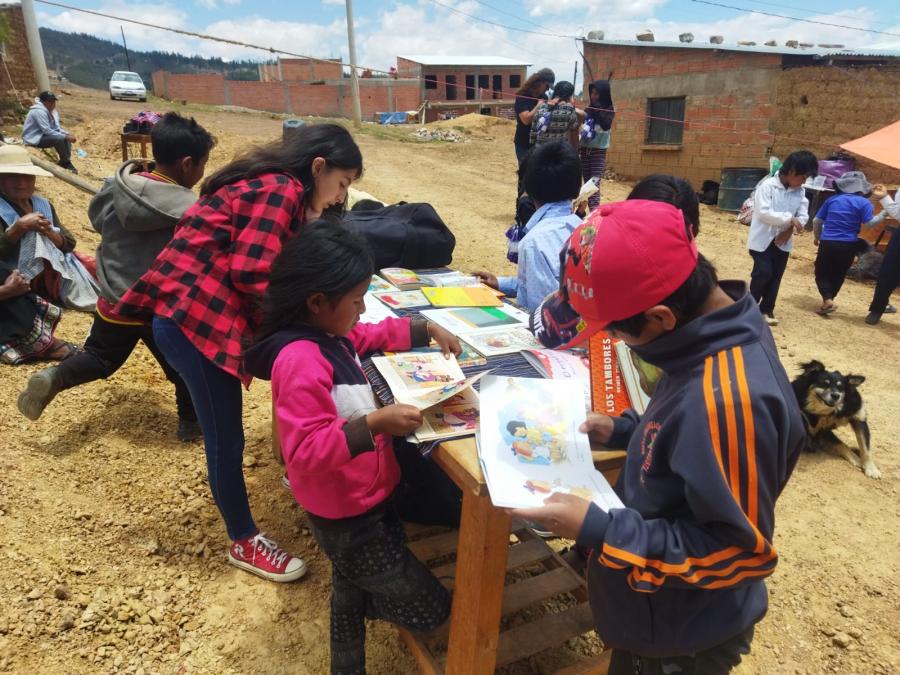By Edison Andrango (Kichwa, CS Staff)
Life in the Andean valleys and highlands has always been a cradle of profound political and cultural diversity. Throughout history, these territories have been the scene of constant tinkuy (encounters) between Peoples with different worldviews, where the victors left behind vestiges of what once was. However, these vestiges have also served as the basis for weaving new realities. In contemporary Andean communities, cultural roots seem immovable, with no room for questioning. But, just as the wind carries new seeds to the fields, current times bring new perspectives. Under this premise, tinkuy—the encounter with the new—is inevitable, even in the most remote corners.
From their Aymara communities in the heart of the Bolivian Andes, two Trans women, Joana Lizeth Gonza and Brígida Felipa Ajata Hinojosa, raise their voices to share their own tinkuy. They speak of an intimate and collective tinkuy with themselves, their communities, and with transgenderism that is in profound dialogue with Indigenous identity, territory, and the constant struggle for recognition and belonging. Their stories, interwoven with forced migration, personal affirmation, and the legal system, weave a new reality of living resistance, deeply rooted in the land of their birth.

Connection with the Land
“The land flourishes in my eyes; I have not strayed from my land,” says Gonza, who is from the Villapuni community in Escoma. For her, and for Hinojosa, who is from Bellavista Marca in Oruro, the land is more than a material good: it is the heart of their cultural and spiritual existence, it is everything. Belonging to it has given them the strength and knowledge to recognize what this concept implies for their bodies. This vital dependence on the land is shared not only by the women, but also by the communities they love—and which they believe should have a serious debate regarding the patriarchal system that governs the processes of inheritance.
Gonza and Hinojosa each describe the need for legal and legitimate ownership of their homeland not only for their practical survival, but also for their spiritual connection. Only there can they continue the traditions inherited from their ancestors. The question of why access to land should be different for Trans women was something they endeavored to answer for themselves, and in doing so, encountered differing opinions and discrepancies caused by a lack of knowledge.
Migration and Reaffirmation of the Aymara Trans Identity
Gonza and Hinojosa took different paths on the way to fully embracing their gender identity. Gonza left her community as a "boy with a different name," and upon returning, having embraced her identity as a Trans woman, she recalls how she initially remained silent. "The community knows exactly who I am," she says, suggesting how difficult she found this tinkuy.
Hinojosa grew up outside her community but always maintained a connection to her homeland. She came out at a very young age, and after several years returned as a Trans woman. For her, this tinkuy "was a crucial moment. The change was radical," she says, noting that the acceptance and affection with which she was received has stayed with her. Her decision to wear her skirt again, a traditional garment symbolizing both her Aymara identity and her reaffirmation of her People's culture, was deeply significant, as many Indigenous women abandon their traditional clothing when they emigrate. Renouncing one’s identity is part of the systematic attack that Indigenous Peoples face daily, everywhere.
Law 807: A Pillar for Land Ownership
Gonza’s and Hinojosa’s experiences, along with the passage of time and new laws, provided them with key tools to communicate and make their legal identity understood by authorities and other community members. A pivotal aspect of their journey was the enactment of Law 807, Bolivia's Gender Identity Law, which came into effect in 2016. This legislation was crucial for the women to exercise their land rights and obtain ownership of their properties. For Gonza, the law facilitated her ability to update her identity documents, allowing her to join the community under her current name and take on gender-specific positions. Her legal identity card became irrefutable proof of her identity for those who questioned her.
For Hinojosa, Law 807 provided her with the necessary support to be recognized as a sayañera (land owner) in her community despite having been registered under her previous male identity. Notifications from the Civic Registry Service to Jachacarangas, the Indigenous organization that grants land titles, allowed for the name change without any issues. This legal support was vital in overcoming potential challenges and reaffirming her right to the land.
The Ongoing Struggle for Land and the Body-Territory
Despite these achievements, the path toward full equality and recognition of sexual and gender diversity in Indigenous communities still presents challenges. The concept of "body-territory," coined by community feminism, highlights the intersection between the oppression of women's bodies and the exploitation of nature. It denounces the forces of extractivism and violence that combine to suppress their power to feel at home within themselves—a feeling that implies their connection to their land. For Gonza and Hinojosa, land ownership is not only a legal and legitimate right, but a way to keep their culture alive and honor their identity, resisting migration, community status quo norms, and the widespread lack of knowledge. Their struggle for land is a struggle for existence, for the survival of their bodies within their communities, and the affirmation of their identity in a world that often seeks to erase them.
Gonza’s and Hinojosa’s tinkuy with the established beliefs of the Andean world is not an individual tale: theirs are stories that are helping to weave a new reality within communities, not only in Bolivia, but in every corner of the Andes. The resilience they have demonstrated in their personal and collective adaptation charts the path to a possible future, if we all dare to reflect and walk toward a common horizon where sexual diversity is welcomed with the same respect as every cultural practice and every sacred date that the cosmos offers to its people. That is the true Tinkuy, in which both flourish together. Only a shared search for justice will reveal that dignity and full belonging are possible.



